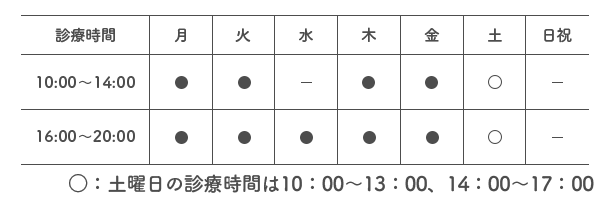Content
ACT could help people with AUD acknowledge and work through challenging emotions instead of blocking them out. It might help if you developed AUD by using alcohol to suppress painful emotions and memories. A 2020 review of research found that CBT allowed people with AUD to build coping and emotional is alcoholism a mental illness regulation skills. Northbound Treatment Services® is an excellent, life-changing and life-saving program. Additionally, by this point, the brain is so convinced that it needs alcohol just to function properly that when there isn’t any alcohol in the body, the brain thinks something is wrong.
Additionally, under the Mental Health Parity and Addiction Equity Act of 2008, health insurance providers are legally required to cover treatment costs for alcoholism since it is considered a mental health condition and a substance abuse issue. As is usually the case (Anthenelli 1997; Helzer and Przybeck 1988), the patient in this example does not volunteer his alcohol abuse history but comes to the hospital for help with his psychological distress. The acute stressor leading to the distress is his wife’s leaving him; only further probing during the interview uncovers that the reason for the wife’s action is the man’s excessive drinking and the effects it has had on their relationship and family. In earlier versions of the DSM, alcoholism was categorized as a subset of personality disorders.
You may feel like doing drugs is the only way to handle unpleasant feelings, but HelpGuide’s free Emotional Intelligence Toolkit can teach you how to cope with difficult emotions without falling back on your addiction. Learn how to tackle addiction when you’re also dealing with depression, anxiety, or another mental health problem. A systematic review of psychosocial treatment strategies for co-occurring alcohol addiction and depression reported integrated treatment to be better for alcohol and depression. Moreover, the psychosocial stresses that go hand in hand with a life-impacting alcohol dependence can exacerbate a susceptibility to mental illness. 0.7% of all years of life lost to poor health, disability or early death can be attributed to alcohol–the most for any psychoactive substance. Once people begin drinking excessively, the problem can perpetuate itself.
Teens can communicate with their therapist via video, phone, messaging and live chat. Similarly, the results of the studies exploring the role of psychosocial interventions in this population have been mixed. While some studies support the role of antidepressants, others have failed to demonstrate its effectiveness. There is some evidence to support the use of combination CBT and Motivation Enhancement Therapy in this population. The sedative effect of certain antidepressant medications – such as mirtazapine and paroxetine – can be magnified by the concurrent use of alcohol and can adversely impact coordination, judgment and reaction time.
In any case, Northbound has found that treating substance abuse and mental health simultaneously is more effective than addressing them separately. The progression of alcoholism can be very subtle, often taking place over years or even decades. Once the condition becomes apparent, it can be hard to pinpoint exactly when an alcoholic lost control. And yet, understanding the stages of alcohol use disorder can help you determine whether you or a loved one has a problem and how to help an alcoholic on the journey to recovery. The stages include problematic drinking, severe alcohol abuse, and obsessive alcohol abuse.
This chemical shift can make it difficult for the brain to regulate itself ever again, which can contribute to the development of mental illness and, ultimately, the occurrence of mental illness with alcoholism. At this point, the drinker has become ever more dependent on alcohol both physically and psychologically. This is also when mental health issues start to kick in, such as feelings of anxiety, depression, aggression, and irritability. Under the Mental Health Parity and Addiction Equity Act of 2008, health insurance providers are legally required to cover treatment costs for alcoholism since it falls under the categories of both substance abuse and mental health disorders. Many people who are diagnosed with AUD are dually diagnosed with another mental health disorder, further connecting alcoholism and mental illness. Alcohol abuse can begin as a maladaptive coping mechanism for the untreated symptoms of a mental illness such as depression or anxiety.
However, recent studies have demonstrated no reinforcement or increased risk of drinking behavior in a group of dually diagnosed (co-occurring alcohol use disorder and PTSD) individuals being treated for their PTSD. Clinicians refer to alcohol addiction as alcohol use disorder or substance use disorder . While AUD refers only to alcohol addiction, SUD may refer to either a drug or alcohol addiction. The National Institute on Drug Abuse urges all people, including healthcare workers, to use the terms alcohol use disorder or substance use disorder rather than addiction, to avoid stigmatization.
The concept of “harmful use” (as opposed to “abuse”) was introduced in 1992’s ICD-10 to minimize underreporting of damage in the absence of dependence. As with similar substances with a sedative-hypnotic mechanism, such as barbiturates and benzodiazepines, withdrawal from alcohol dependence can be fatal if it is not properly managed. Alcohol’s primary effect is the increase in stimulation of the GABAA receptor, promoting central nervous system depression.
SMiLE 整骨院
| 診療時間 |  |
|---|---|
| 住所 | 〒112-0006 東京都文京区小日向4-5-10 小日向サニーハイツ201 |
| アクセス | 東京メトロ丸の内線「茗荷谷」駅 徒歩2分 |